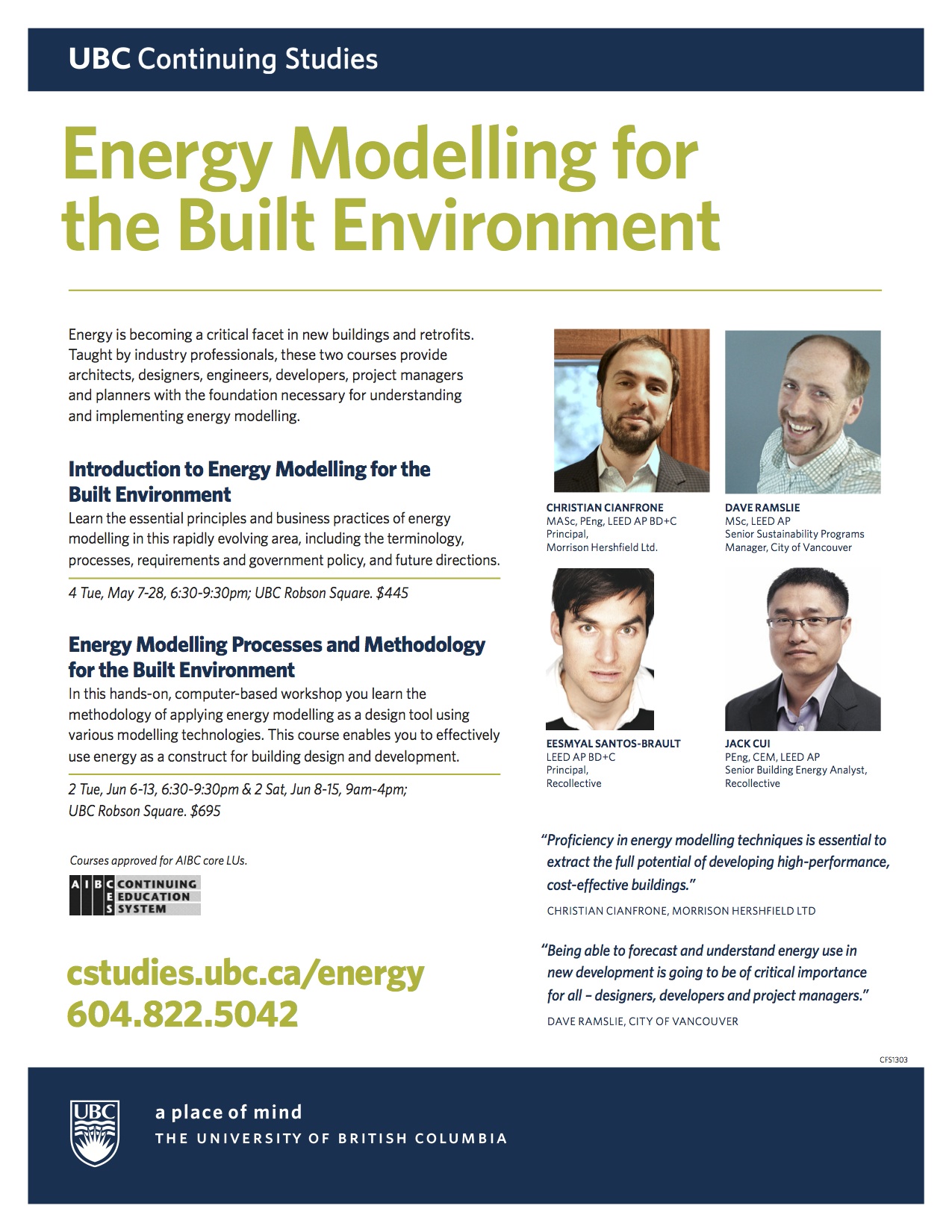New Energy Modelling Courses
We’re happy to announce the result of a collaboration we’ve helped initiate between the City of Vancouver and UBC Continuing Studies: New Energy Modelling Courses!
Energy modelling is how we simulate the energy performance of a building before its built, using advanced engineering software. This is a powerful tool, as it allows us to optimize the building design and run several “what-if” options in a effort to save money and energy. People who do this work are called Energy Modellers.
British Columbia, and Canada in general, lacks energy modelling literacy and capacity. For many, especially real estate developers, energy modelling is seen as a kind of black magic, requiring the skills of an entrusted hyper-specialist for which there are few. The software can be incredibly complex and the outputs strange to understand, even contradictory at times. Yet it is the results of these models (predictions of how much energy the building will consume) that cities create bylaws around, and that developers make million dollar decisions by.
The problem is that, depending on which energy modeller does the work, you get different results! There are also so many different ways to simulate a building correctly, but which will again give you different results. You also get different results, depending on which software is used! As we all know, “Garbage in = garbage out”. In other words, if you feed the energy model with the wrong inputs, you’ll get the wrong outputs. With so many variables, how can we trust the results of these models? Luckily, there are guidelines issued by ASHRAE and the US and Canada Green Building Councils, but these are not complete.
We need some consistency on how energy models are done, as well as how energy modellers are trained. Most energy modellers learn on the job, often reading the online tutorials, with little supervision or mentorship. We also need to grow the number of energy modellers to meet the growing demand.
And finally, we need to grow the energy modelling literacy in the building industry, especially among real estate developers, architects and mechanical and electrical engineers. These people need to know the basics of modelling, so they know how to ask the right questions, and interact with the energy modeller in the right way to get what we all want – a high performance building that saves money and energy.
We believe the following UBC courses are the first step to address the aforementioned challenge. We hope many people will take the courses so that energy modelling capacity and literacy (at least in Vancouver) will grow.
To register, go to: cstudies.ubc.ca/energy , or call 604.822.5042

